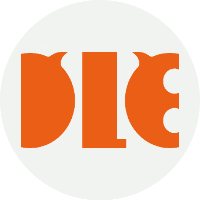Debating League of Europe launched
 This weekend a big experiment started. Seven countries, seven capitals, seven tournaments, one league: The Debating League of Europe. With the DLE, the European debating circuit could get what the circuit has almost become already anyway: A cohesive debating scene where debaters from all over Europe regularly meet and mingle. The League provides a common framework for keeping track of results of chosen tournaments across Europe to find a winner at the end of a season. The rule is simple: The biggest tournament of the capital of a country is eligible.
This weekend a big experiment started. Seven countries, seven capitals, seven tournaments, one league: The Debating League of Europe. With the DLE, the European debating circuit could get what the circuit has almost become already anyway: A cohesive debating scene where debaters from all over Europe regularly meet and mingle. The League provides a common framework for keeping track of results of chosen tournaments across Europe to find a winner at the end of a season. The rule is simple: The biggest tournament of the capital of a country is eligible.
The DLE is open for participation for every debating society in Europe. Every debater can be part of that European sense of belonging. But besides the benefits for the European idea and the fact that all participants gain a lot, we also have old-fashioned incentives. At the end of the season, there are two winners: A society that wins the league and a speaker who wins the DLE speaker tab – in both, open break and in English as a Second Language, ESL.
The best societies and best speakers will be honored during the opening ceremony of the European Universities Debating Championships (EUDC). The honorary guest will award them with the prize they have earned.
To be part of the league and to be able to be on that stage is simple. The only thing to do is: Take part in the tournaments. And if you like it competitive: Be good in them!
The tournaments to be visited in the first year are spread across Europe. The first step is taken by the SOAS IV in London, followed by: Utrecht Open, Trinity IV in Dublin, Vienna IV from Austria, Paris IV, the Belgrade Open and the Berlin IV. The Plan of the League can be accessed on the homepage of the DLE. In the second season, the DLE will probably consist of even more tournaments. For more details, please take a look at the tentative tournament schedule.
We know that at first glance it seems hard for every debating society to visit every tournament. This is why the tournaments are located in capitals: Usually those are easy to access for everyone and worth a visit anyway. Further, it is important to emphasize that the teams that gather points for a society can consist of different people at each tournament. Thus the travel expenses can be distributed between many. Thirdly, there is no need to participate in every tournament to win the league – 66 percent are enough. And last of all: With a little luck and some help, the EU might find this project worth funding. We are exploring that possibility right now. If somebody has hints or advice regarding that: Please do contact Marcus Ewald (Note: The Achte Minute team will be of help if you do not have any info to contact Marcus Ewald – mail to team [at] achteminute [dot] de).
All the rankings and reports about the tournaments and the current standings will be published on debatingleagueofeurope.wordpress.com.
Along with the numbers and tabs you will be able to find background information and links to most important resources of the European debating scene.
European debating long has longed for a cohesive scene. This league makes that possible. Done by creating a system of tournaments that matters. Please support this idea, since it has the potential to create a truly European sense.
Marcus Ewald / apf






Das Regelwerk der DLE entspricht ziemlich genau dem der FDL. Fein.
Ich finde die Idee toll. Und noch eine Liga ist sicherlich eine Bereicherung für die Szene. Was ich allerdings nicht sehe ist der Sinn der zentralistischen Fußfessel in der Hauptstadtbeschränkung. Ist München wirklich soviel schwerer zu erreichen als Bern oder Frankfurt als Bratislava? Die Erweiterung auf Utrecht scheint ja schon in der ersten Saison zu zeigen, dass das eine blöde Beschränkung ist.
Manuel hat ja schon darauf hingewiesen, dass die Liga sich ansonsten ein produktives Vorbild am Erfolgsmodell FDL genommen hat. – Ich glaube wenn die FDL mit dem gleichen Passus gestartet wäre und alle Münsteraner Turniere nach Hannover zwangsverschifft worden wären, dann wäre es bei weitem nicht so schnell zu einem aktiven und farbenfrohen Debattierleben gekommen. Hat jemand eine Erläuterung, wofür die Zentralismusklausel gut ist? Das Argument, dass der Berliner Hauptstadtflughafen dem Fraport soweit überlegen ist oder Bern leichter zu erreichen ist als Zürich kaufe ich irgendwie noch nicht ganz.
Das die Nummer mit der Hauptstadt ist nicht in Granit gemeißelt ist, zeigt Utrecht. Und die Satzung, in der es nicht drinsteht.
Utrecht ist immerhin die Hauptstadt der Provinz Utrecht.